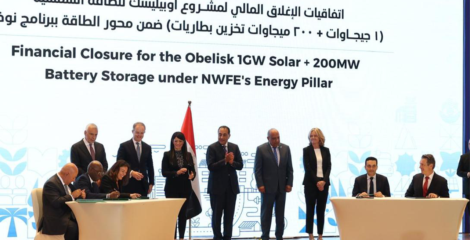- eSIMs land in Egypt, bringing seamless connectivity.
- South Africa pioneers biodegradable SIM cards to reduce environmental waste.
- Technology meets sustainability in two transformative moves in the MENA and African telecom markets.
The Next Chapter in Telecom
The telecom industry is buzzing with two groundbreaking moves. In Egypt, the National Telecommunications Regulatory Authority (NTRA) has unveiled eSIM technology. This is a step toward fully digital connectivity that eliminates the need for physical SIM cards.
Over in South Africa, MTN, a major telecom operator, is introducing biodegradable SIM cards, catering to eco-conscious users. EcoSIM is a sustainable SIM card crafted to help network operators meet their environmental and social responsibility objectives.
Egypt’s eSIM initiative, backed by local telecom providers like Vodafone Egypt, Orange Egypt, and Telecom Egypt promises effortless number activation without swapping physical cards. Meanwhile, MTN is tackling SIM card waste with its innovative eco-SIMs, made from environmentally friendly materials.
What happens to plastic waste worldwide?

These advancements redefine how users connect, with NTRA’s stated mission of aligning Egypt’s telecom sector with global standards and MTN’s strive to improve corporate sustainability.
Both efforts reflect a shift in telecom priorities, balancing high-tech convenience with sustainability, paving the way for an environmentally friendly digital age.
From eSIMs to Green SIMs
This isn’t just about cool tech; it’s about shifting paradigms. With over 103 million mobile users, Egypt’s embrace of eSIMs aligns with global trends, simplifying customer experiences while reducing dependency on physical SIM production.
South Africa’s eco-SIMs mark a step toward sustainable telecom operations. With over two million tons of plastic waste generated annually, MTN’s initiative could curb telecom-related environmental harm.
Moreover, both initiatives align with national goals—Egypt’s Vision 2030 and South Africa’s green economy initiatives. These moves reflect not only technological progression but also a commitment to better align with consumer preferences.
Tech, Sustainability, and You
The introduction of eSIMs and biodegradable SIMs signals a bold new era for telecom users in Africa. eSIM technology streamlines mobile connectivity, making multi-device syncing and international travel a breeze. It is no wonder industry experts predict eSIM adoption to grow by 11% by 2027.

South Africa’s eco-SIMs, on the other hand, could reduce the telecom sector’s carbon footprint significantly. Beyond environmental benefits, these initiatives inspire innovation across industries, encouraging competitors to invest in greener technologies.
As African nations integrate sustainability with cutting-edge technology, the possibilities extend beyond mobile networks. This shift hints at a broader movement, where consumer demand and corporate responsibility converge to shape a more connected and sustainable future.
If you see something out of place or would like to contribute to this story, check out our Ethics and Policy section.














